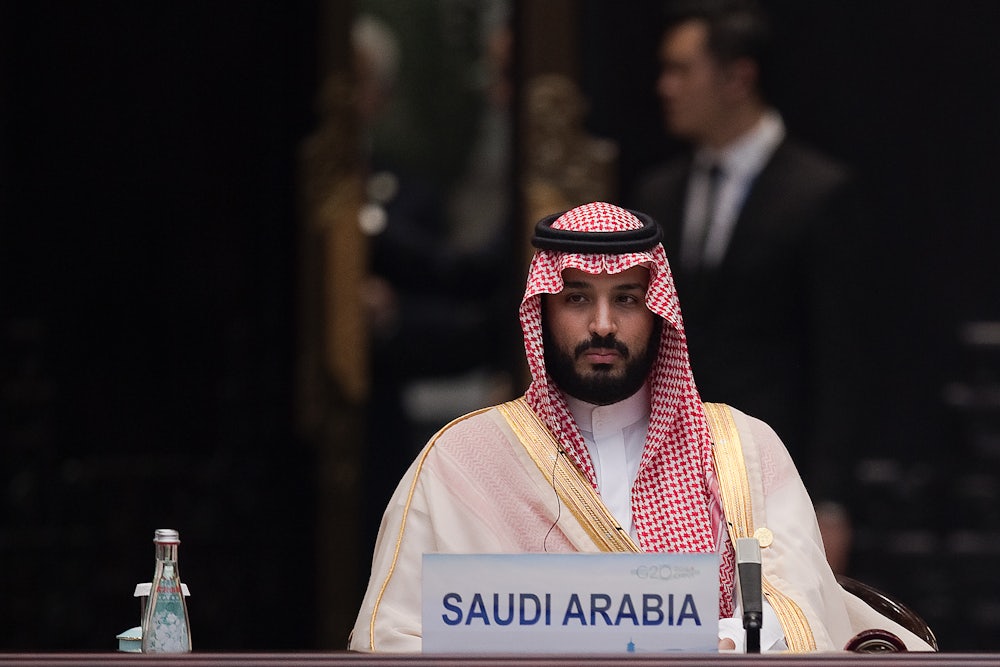What is it about Canadians that irritates Arab leaders? At the end of last week the Canadian foreign minister made a rather direct call for the Saudi government to release some recently detained Saudi civil rights activists. The Saudi response was instant and intemperate.
Riyadh suspended flights, threatened trade, sent the Canadian ambassador home, and ended scholarships for Saudi students in Canada (which surely hurts these students as much as it does Canadian universities).
It was not the first time that Canada has provoked an angry reprisal from a Middle Eastern ruler. In 2010, frustrated by Canada’s refusal to agree new landings rights agreements for its commercial airlines to Toronto, Vancouver, and Calgary, the UAE’s rulers swiftly booted Canadian troops from their logistics base in the Gulf nation.
In both cases the responses were so disproportionate you suspect that the rulers in question took the Canadian affront a little personally. (It would be easy, here, to crack a joke about Canadians’ worldwide reputation for niceness, although in the strange world of diplomatic disputes it wouldn’t be the first time something this trivial had given an opposing side the wrong idea.) In fact, in speculating about the cause of the current crisis between Canada and Saudi Arabia—and absent a candid interview with the key Saudi decisionmaker, Crown Prince Muhammad bin Salman (MBS), all we can do is speculate—we should not lose sight of this personal dimension.
Sometimes rulers in the region, who run their country’s like one would a family business, simply get annoyed. In any event, it would be hard to imagine such dramatic reprisals being conjured up by anyone other than rulers themselves; certainly not their more cautious officials.
Having said that, as a number of observers of Saudi affairs have ventured, there may well be some method here, too. One theory is that Canada is being made an example of; a warning to other countries that injudicious commentary on Saudi affairs could be an expensive exercise. Perhaps Canadian companies with business interests in Saudi Arabia are already pushing Ottawa to make amends.
Another possibility is that MBS is using the Canadian intervention in Saudi domestic affairs to stoke a bit of nationalism, not least to keep dissenting Saudis in line. It is noteworthy that the activists arrested in recent months have been labelled traitors and foreign agents on traditional and social media in the Kingdom. A bit of nationalist clamouring is a great way to drown out dissent.
If either of these theories is correct it would be another interesting data point on MBS and his reformist agenda. Some analysts have been too quick to dismiss the young tyro and his reformist plans. I think he is serious about refurbishing the ruling system and Saudi society, not least to keep himself and his family at its head.
Like others in the region, that system is starting to seize and splutter, even if it’s better lubricated than most by its oil wealth. And in many ways, MBS is not so much reforming the country from top-down as responding to the demands of Saudi society for change that have been building for many years.
But herein lies the problem for MBS. He may well fear that in reforming the country he could loose ideas and forces that he will not be able to fully control. The arrests of leading women’s activists over recent months just when he was introducing some of the very reforms they had long advocated—such as the right to drive—might be read as a message that he, and only he, will dictate the pace of reform.
But he probably also understands that like greater historical reformers of the modern Middle East—from Attaturk in Turkey to Gamal Abdel Nasr in Egypt—he needs to mobilize his people if he is to truly transform his country and its society.
In this regard (and at the risk of being accused of interfering in Saudi Affairs), an argument could be made that the best way to do this is to empower and mobilize the very women that he has been locking up of late.
Many Saudi women are highly educated. Many also don’t work—or work in limited sectors—because of cultural, legal or practical barriers (such as, until recently at least, not being allowed to drive). Like the vast oilfields that transformed Saudi Arabia after World War II, tapping this enormous economic and intellectual potential could rapidly change the country’s economic future—precisely what MBS has said he is trying to do with his reforms.
By contrast, mobilizing Saudi nationalism, especially by preaching to anti-foreigner instincts, as increasingly popular as such a strategy might be around the world these days, will offer some short-term advantages. But it could also prove counterproductive in all sorts of nasty ways.
One episode in the current Saudi drama with Canada possibly highlights that danger. As the dispute erupted, a Saudi youth group took aim at Canada on Twitter with what it claimed was an Arabic proverb: “He who interferes with what doesn’t concern him finds what doesn’t please him.” More menacing than the proverb was the image accompanying it: a Canadian airliner seemingly on a collision course with Toronto’s CN Tower.
The offending tweet was condemned by Saudi officials, and promptly taken down by the group that published it. The latter claimed that the intent of the image had been misconstrued. Maybe the intention was innocent. But just the possibility that it wasn’t should be alarming to Saudi authorities—as it clearly was to those officials who swiftly censured it.
Even if it was just a bit of youthful macho posturing, it is something Saudi Arabia’s international image could do without, especially as it tries to attract foreign investment. Then again, the same might be said of the indignant way that Saudi Arabia’s rulers have handled their contretemps with Canada.
